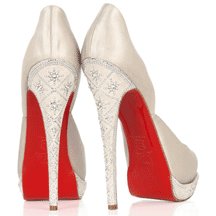
Brand Focus
Be a Sword. Not a Broom.
Brand focus is a critical component in building your brand. Strong brands have one big (major) point. Weak brands are a collection of small (minor) points tied together. Build a business that's a sword, not a broom.
In the book, Why Johnny Can’t Brand, authors Bill Schley and Carl Nichols Jr. wrote, “The positioning paradox is that the power of your message is directly proportional to how simple you can make it and how few words and images you can use to say it.”
The point is simple: No matter how many strong selling points or expectations might exist for your business, you are better off choosing one and making it the sole focus of your brand.
That's because virtually any focus is better than no focus. And the less information we’re given, the more likely we are to remember it.
In fact, causing a customer to think is never in your best interest. Make choices so clear that a customer or prospect does not need to think. They only need to act.
The meaning of focus is just that—single-minded devotion to one principle expectation. And fortunately for you, you won’t find a lot of competitors dedicated to focus. It is too difficult for most people to commit to a sword. The temptation to build a broom—to wander off focus—is just too great.
As branding great, Al Ries said, “The best approach to take in our overcommunicated society is the oversimplified message. You have to sharpen your message to cut into the mind.”
A sword or spike is the perfect metaphor for focus. You deliver the entire force of your brand in one spot in order to cut into the mind because “marketing is not about markets; marketing is about minds.” To get into the mind, your brand can’t be a blunt object. It must be a sword with all your brand’s resources and offerings perfectly aligned behind it to deliver maximum impact. One of my favorite "sword brands"? Louboutin shoes.
Because the sole of every shoe is painted bright red (Pantone 187C, if you must know). Every boot, pump, and stiletto is adorned with this brilliant red color. At as much as $1,800 a pair, women aren't buying good craftsmanship, excellent customer service, premium materials, or any number of traditional attributes. Women buy that alluring red sole. That's what Louboutin is known for. The distinctive red sole is the sword. And it's a fantastic way to circumvent the fact that you can't put a big logo on a spike-heeled pump. Plus, it's bold and ostentatious, turning a fashion statement into a fashion "roar."
So, what's your sword? A recent article in Fast Company asked: "What's the one thing your company stands for? If you stand for great service, low prices, fantastic quality, speedy delivery, stylish design, and being environmentally friendly, you actually stand for nothing. Your customers, team, and partners won't understand your true value proposition. By trying to be all things to everyone, you'll end up lacking definition and delighting no one."
Think sword. Not broom.
The Power of Focus
When you started in business, you likely followed Maslow’s hierarchy of needs. Business strategy was probably not on your mind; survival was. So you start your business, get customers (hopefully), pay the bills, and try to save some money.
NOW you're more interested in how to GROW your business than about day-to-day survival. This is where focus comes in, because being less is actually being more. When you narrow the scope of who you are and what you do, you’re packaging yourself as a specialist offering a more narrow and precise range of services or products.
Focus and specialization lets you pick a few lucrative, in-demand areas of your business and build your brand around them.
-
Focus for differentiation
-
Focus for presumed expertise
-
Focus for perceived value
-
Focus because it’s easier to understand
-
Focus on your strengths
Simplify your value proposition, and THEN amplify it through all your communications. This is counterintuitive, but essential in having focus.

